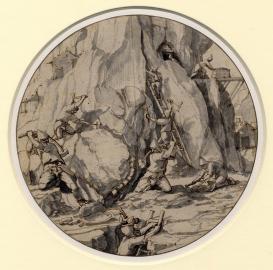This first research area of the Anthropocene umbrella project investigates the development of particular knowledge economies that concern resource extraction and resource flows, the transformations of energy systems, climate change the changing interfaces between the environment, architecture and human bodies as well as the particular human-environment interaction within agricultural practices and traditions.
Projects
-
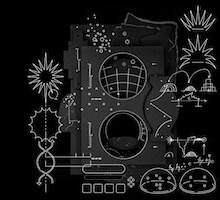 Anthropogenic Markers: Historical and Material Contexts of a Twentieth-Century Transition in Earthly Matters
Anthropogenic Markers: Historical and Material Contexts of a Twentieth-Century Transition in Earthly MattersGIULIA RISPOLI | CHRISTOPH ROSOL | Cooperation Partners: HAUS DER KULTUREN DER WELT (HKW) | ANTHROPOCENE WORKING GROUP (AWG)
The Anthropocene Working Group (AWG) is coordinating a series of geological investigations to identify key anthropogenic signatures for the onset of a new human-led epoch: the Anthropocene. As the group assesses the material evidence for a globally synchronous and lasting impact of human activities on physical, chemical, and biological conditions within the Earth system, it reconnects the debate on the Anthropocene to its actual chronostratigraphic meaning.
-
 A Cultural History of the End of Fossil Fuels
A Cultural History of the End of Fossil FuelsGRETCHEN ANNA BAKKE
Taking as my starting point the presumption that we are in the early days of a massive phase-out of fossil fuels, this project brings culture and technology together to ask: how did we get here and how do we move beyond the present into an energetic regime that functions differently? I do this research as an anthropologist, though much of the study is historical and archival because my primary interest is in the ways in which people and cultures transform together with normative technological (and material) systems.
-
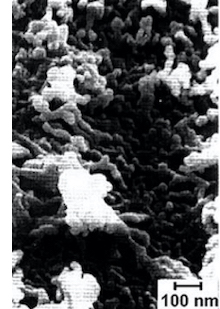 Industrial Catalysis and its Impact on the Human-Earth-System in the Anthropocene
Industrial Catalysis and its Impact on the Human-Earth-System in the AnthropoceneBENJAMIN STEININGER | Cooperation Partners: UNISYSCAT TU-BERLIN
One of the key factors of the modern historical process and of the Great Acceleration in the twentieth century is the chemical industry, and in particular the industrial tool of catalysis. The project investigates this both material and intellectual history and interprets catalysis as a model case for human-Earth interaction in the Anthropocene, and as a model case for establishing a chemical-cultural theory.
-
 Histories of Energy Resource Conservation: from Paradox to Policy
Histories of Energy Resource Conservation: from Paradox to PolicyTHOMAS TURNBULL
This research project traces the manifold and under interrogated history of energy resource conservation. In doing so, it documents the development of a body of research, knowledge, and practices, which formalized the idea that society could act as a means for conserving energy, the capacity to do work, rather than saving specific sources of energy, such as coal or petroleum. This project hypothesises that energy conservation must be understood not only as an applied science but also as a justification for certain forms of political relations.
-
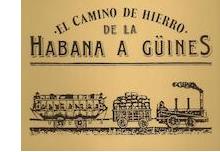 Mineral Coal and the Transformation of Energy Systems
Mineral Coal and the Transformation of Energy SystemsHELGE WENDT
In this project, coal is investigated as an object of multidisciplinary studies in order to understand how, in relation to knowledge, societies developed and non-human processes were recognized, and why coal became the main agent in the energy transition from organic combustibles to fossil combustibles and which consequences this transition entailed on a global scale. The project focuses on the first Industrial Revolution and the subsequent industrial alteration of natural carbon cycles by humans, when for the first time in human history such fossil fuels as coal and lignite were used on a massive scale as combustibles in industrial production.
-
 Oil Corporate Magazines in the 1950s and 1960s
Oil Corporate Magazines in the 1950s and 1960sDONATELLA GERMANESE
Considering that the extraction of petroleum has a huge environmental impact and the use of fossil fuels is one of the main causes of global warming, my project aims to spotlight the rhetorical strategies that have been applied to enter the carbon era, with a side glance at the aesthetics recently deployed to exit it. This project discusses case studies of intellectuals and artists who did not simply deliver reports and illustrations of the oil industry but offered praise or critical views of the profound changes caused to the environment and society by oil extraction and mass motorization.
-
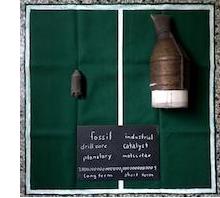 Fossil Modernity—Technical Materialities and Time Regimes in the Anthropocene
Fossil Modernity—Technical Materialities and Time Regimes in the AnthropoceneBENJAMIN STEININGER | Cooperation Partners: MAX PLANCK INSTITUTE FOR CHEMICAL ENERGY CONVERSION (MPICEC)
One of the key factors of the Great Acceleration in the twentieth century is the chemical industry, and in particular the industrial technicality of energy storage. This is where a new cultural theory of industry should step in. Neither the history of science and technology, nor the cultural theories of modernity have so far drawn appropriate attention to the technicality and thus culturality of energy storage.
-
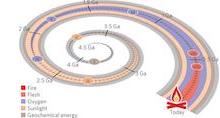 Transformations of Energy Systems
Transformations of Energy SystemsJÜRGEN RENN | Robert Schlögl | BENJAMIN STEININGER | CHRISTOPH ROSOL | Cooperation Partners: MAX PLANCK INSTITUTE FOR CHEMICAL ENERGY CONVERSION (MPICEC)
To survey current research on energy transitions, an international two-day symposium was held in January 2017 at the Harnack Haus of the Max Planck Society in Berlin, representing a joint undertaking of the Max Planck Institute for Chemical Energy Conversion (MPICEC, Mülheim/Ruhr) and the Max Planck Institute for the History of Science. Historians, chemists, anthropologists, political scientists, and architectural historians met to discuss the current role of the humanities in studying energy systems and their transformations.
-
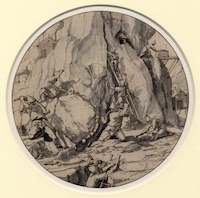 Past Projects
Past Projects2018–2019 | Daniel Adam Barber
Climatic Effects: Architecture, Media, and the Great Acceleration
Anja Krieger
The Discovery of the Plastisphere—a History of Science of Plastic Pollution
2016–2017 | Tina Asmussen
Subterranean Economies: Resource Flows and Metal Culture in Early Modern Mining
2019 | Beate Geissler | Oliver Sann
Hopium Economy: Substance Dependencies and the Technosphere
2016–2017 | Francesco Luzzini
The Earth Sciences and Field Research in Early Eighteenth-century Italy
2017–2019 | Elena Serrano
Domesticating Air—The Material History of Breathing Safely
2016–2017 | Daniel Niles
Coevolutionary Approaches to the Anthropocene
2007–2015 | Ursula Klein
"Useful Sciences," State Bureaucracy, and Industrialization in Prussia

